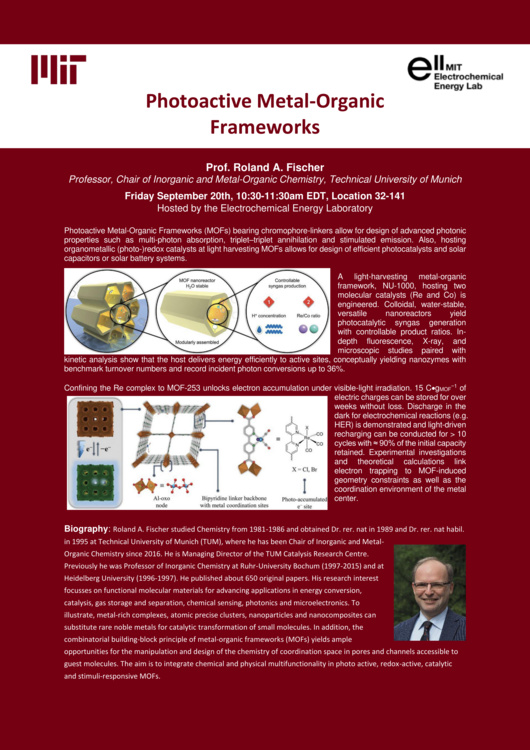
Events
Photoactive Metal-Organic Frameworks

Join us for a seminar by Professor Roland Fischer from Technical University of Munich on "Photoactive Metal-Organic Frameworks".
Abstract:
Photoactive Metal-Organic Frameworks (MOFs) bearing chromophore-linkers allow for design of advanced photonic properties such as multi-photon absorption, triplet–triplet annihilation and stimulated emission. Also, hosting organometallic (photo-)redox catalysts at light harvesting MOFs allows for design of efficient photocatalysts and solar capacitors or solar battery systems.
A light-harvesting metal-organic framework, NU-1000, hosting two molecular catalysts (Re and Co) is engineered. Colloidal, water-stable, versatile nanoreactors yield photocatalytic syngas generation with controllable product ratios. In-depth fluorescence, X-ray, and microscopic studies paired with kinetic analysis show that the host delivers energy efficiently to active sites, conceptually yielding nanozymes with benchmark turnover numbers and record incident photon conversions up to 36%.
Confining the Re complex to MOF-253 unlocks electron accumulation under visible-light irradiation. 15 C·gMOF−1
of electric charges can be stored for over weeks without loss. Discharge in the dark for electrochemical reactions (e.g. HER) is demonstrated and light-driven recharging can be conducted for > 10 cycles with ≈ 90% of the initial capacity retained. Experimental investigations and theoretical calculations link electron trapping to MOF-induced geometry constraints as well as the coordination environment of the metal center.

